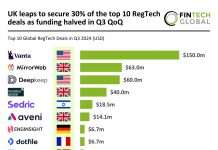From: RegTech Analyst
UK authorities are enforcing stricter reporting rules for the asset management industry. But navigating the regulations can be tricky.
From January on, the asset management industry have been forced to publish assessment of value (AOV) statements on their websites. The AOV rules are another step in the Financial Conduct Authority’s effort to ensure the asset management industry operates in the best interest of their clients.
This need became painfully apparent after Neil Woodford’s career as a star fund manager abruptly ended in a flurry of bad market bets that saw his fund implode.
However, MirrorWeb, the RegTech company, has noted that complying with the requirements are far from straightforward.
On the face of it, the AOV statements must be centred around seven criteria: quality of service, fund performance, AFM costs, economies of scale, comparable market rates, comparable services and classes of units.
Nevertheless, these criteria can still be difficult to follow. “Defining ‘value’ is no easy task and will vary significantly across asset classes, investment structures and categories of investors,” MirrorWeb wrote. “Initially, fund houses may want to look at performance but something as simple as comparing a fund’s performance against a benchmark may not be enough.”
The same thing can be said for assessing the cost of the service provided.
“Being able to demonstrate you comply with regulations is now almost as important as meeting them in the first place,” MirrorWeb continued. “With the onus on evidence now critical, many firms use solutions such as the MirrorWeb platform, which creates reliable and 100% accurate web records of their web channels so they can evidence what was published and when, with full accuracy.”
Copyright © 2020 FinTech Global











